- About
- Certifications
- Study Resources
-
Study Resources
- JavaScript Essentials 1
- JavaScript Essentials 2
- HTML Essentials
- CSS Essentials
General-Purpose Programming
Web Development
- Contact
- Voucher Store
The OpenEDG JS Institute is committed to the development and implementation of the global standard in JavaScript programming certification, and designing an accurate and objective framework for skills assessment and competency validation.
We believe that a good certification program should bridge the gap between IT professionals and employers, as well as address the needs of the industry, increase productivity, and add value to society.
We are convinced that certification should be one of the key tools that allow jobseekers and IT professionals to establish credibility in the job market, by providing a standardized and recognized benchmark of skills, knowledge, and expertise, which will in turn stimulate the growth of the organizations employing the individuals, benefit both global and local communities, and become a flywheel for self-development and innovation.
All our courses cover both theoretical and practical concepts that are essential for interacting with real-life programming tasks and situations. They contain quizzes, tests, interactive assessments, and lab exercises that facilitate the understanding of programming concepts and the conversion of knowledge into practical skills. They have been designed and reviewed by experienced faculty and industry professionals, with the goal of meeting current market trends, and equipping you with a handset of skills for careers in software development, IT, and related technologies.
The courses are aligned with industry certifications which help to validate your skills and gain recognition for your programming expertise. They cover all the levels of programming language proficiency: entry, associate, and professional.
Edube Interactive™ is a fully integrated learning and assessment system that takes you from beginner to advanced, and prepares you for the real world of programming.
OpenEDG JS Institute offers independent and vendor-neutral certification programs in the JavaScript programming language, delivered in cooperation with world-renowned schools, colleges, and universities; training companies and IT industry leaders; and available through the OpenEDG Testing Service, OnVUE Online Proctoring, and a network of 5,000 accredited Pearson VUE testing centers.
The OpenEDG JS Institute offers two distinct certification paths for JavaScript and related technologies:
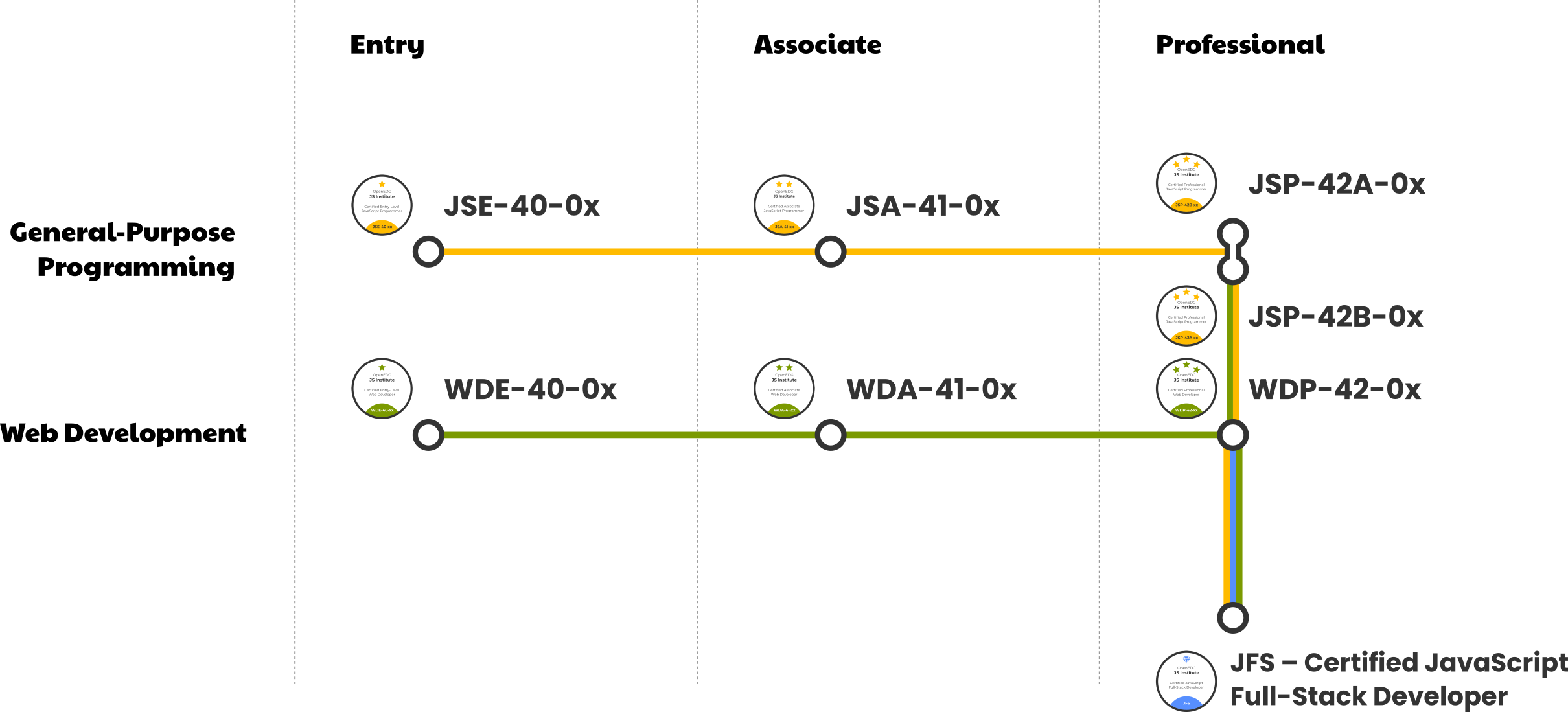 Download the latest version of the roadmap
Download the latest version of the roadmap
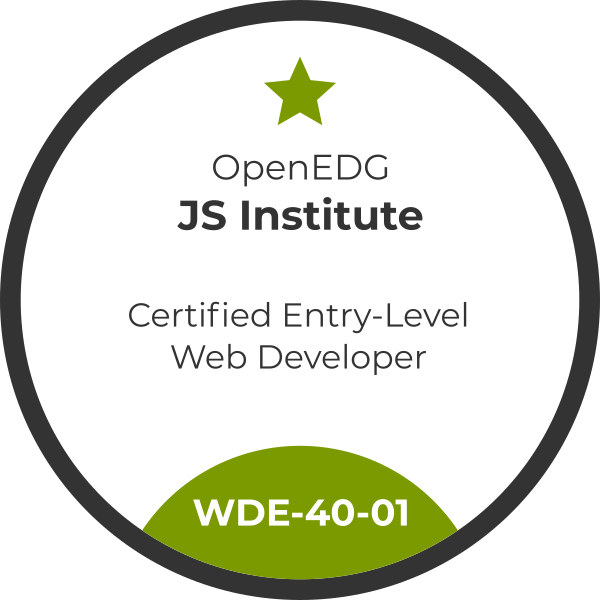

Level: Entry
Delivery Channel: TestNow™
Cost: USD 69
Language: English
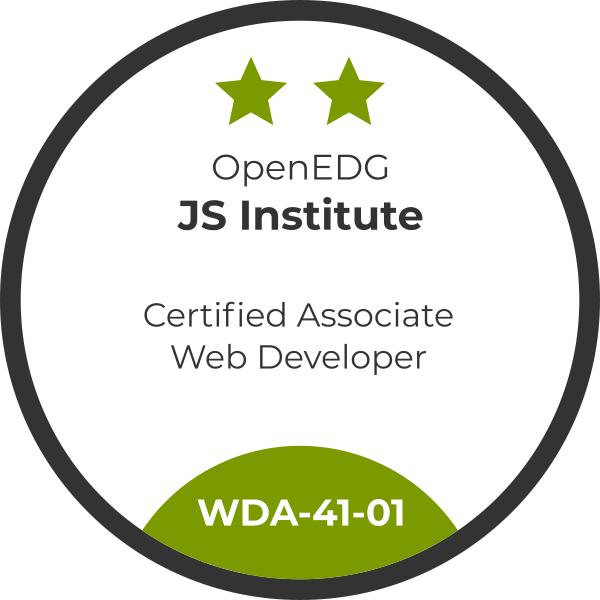

Level: Associate
Delivery Channel: TestNow™
Cost: USD 195
Language: English
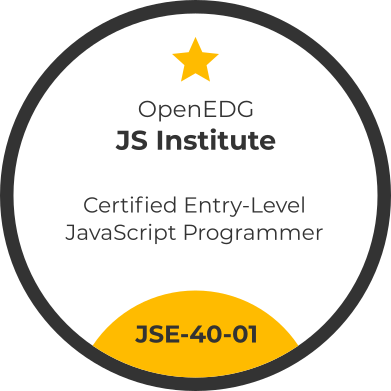

Level: Entry
Delivery Channel: Edube Interactive (OpenEDG Testing Service)
Cost: USD 69
Language: English
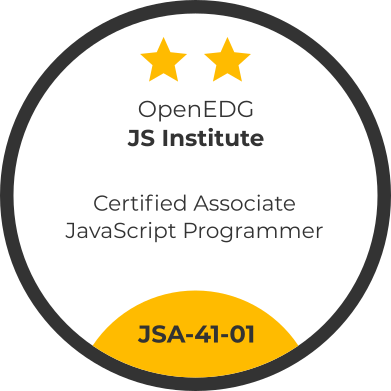

Level: Associate
Delivery Channel: Edube Interactive (OpenEDG Testing Service)
Cost: USD 295
Language: English